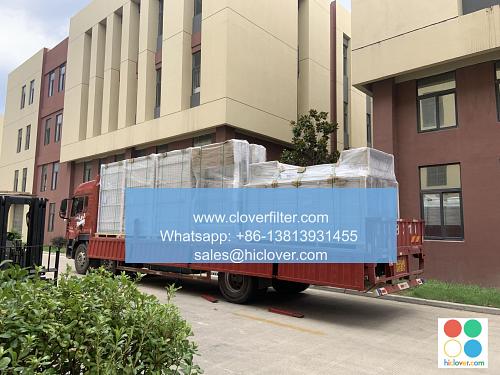Enhancing Patient Care through Advanced Air Filtration at SickKids Hospital

SickKids Hospital, a renowned pediatric healthcare facility, has always been at the forefront of adopting cutting-edge technologies to provide the best possible care for its young patients. One crucial aspect of patient care is maintaining a healthy indoor environment, which is heavily influenced by the quality of the air. In recent years, the hospital has taken significant strides in enhancing its air filtration systems, leveraging advanced HEPA filtration and UV air purification technologies to minimize the spread of airborne pathogens and create a safer, healthier space for patients, visitors, and staff.
Key Application Areas
The integration of advanced air filtration systems at SickKids Hospital has been focused on several key areas, including:
* Intensive Care Units (ICUs): Where patients are most vulnerable to infections, advanced air filtration helps in reducing the concentration of airborne microorganisms, thus minimizing the risk of hospital-acquired infections (HAIs).
* Operating Rooms: To ensure the highest level of sterility during surgical procedures, advanced air filtration systems are employed to remove even the smallest particles and microorganisms from the air.
* Patient Rooms: Every patient room is equipped with state-of-the-art air filtration systems, ensuring that each child receives care in an environment that is as free from airborne pathogens as possible.
* Common Areas: Waiting rooms, corridors, and other common areas where patients, families, and staff interact also benefit from enhanced air filtration, contributing to an overall healthier environment throughout the hospital.
Benefits of Advanced Air Filtration
The implementation of advanced air filtration systems at SickKids Hospital has yielded numerous benefits, including:
* Reduced Infection Rates: By minimizing the presence of airborne pathogens, the hospital has seen a decrease in the incidence of hospital-acquired infections, contributing to better patient outcomes.
* Improved Air Quality: Advanced air filtration ensures that the air throughout the hospital is cleaner and healthier to breathe, enhancing the comfort and well-being of patients, families, and staff.
* Enhanced Patient Safety: The reduction of airborne microorganisms and particles creates a safer environment for patients, particularly those with compromised immune systems.
* Increased Staff Satisfaction: Knowing that they are working in a facility that prioritizes air quality and patient safety boosts staff morale and satisfaction, leading to better care and service.
Technological Advancements
SickKids Hospital’s commitment to leveraging the latest technologies in air filtration has included the adoption of:
* Nanofiltration: Capable of capturing particles as small as 0.01 microns, nanofiltration technology offers unprecedented levels of air purity.
* Bioactive Filtration: This technology not only captures microorganisms but also neutralizes them, providing an additional layer of protection against airborne pathogens.
* Smart Air Filtration Systems: Equipped with sensors and AI, these systems can detect changes in air quality in real-time, automatically adjusting filtration levels to maintain optimal air purity.
Conclusion
The integration of advanced air filtration systems at SickKids Hospital represents a significant leap forward in patient care, emphasizing the hospital’s dedication to providing a safe, healthy environment for all. Through the strategic application of cutting-edge technologies like HEPA filtration, UV air purification, nanofiltration, and bioactive filtration, SickKids continues to set a high standard for pediatric healthcare facilities worldwide, underscoring the importance of air quality in the pursuit of exceptional patient care and outcomes.

